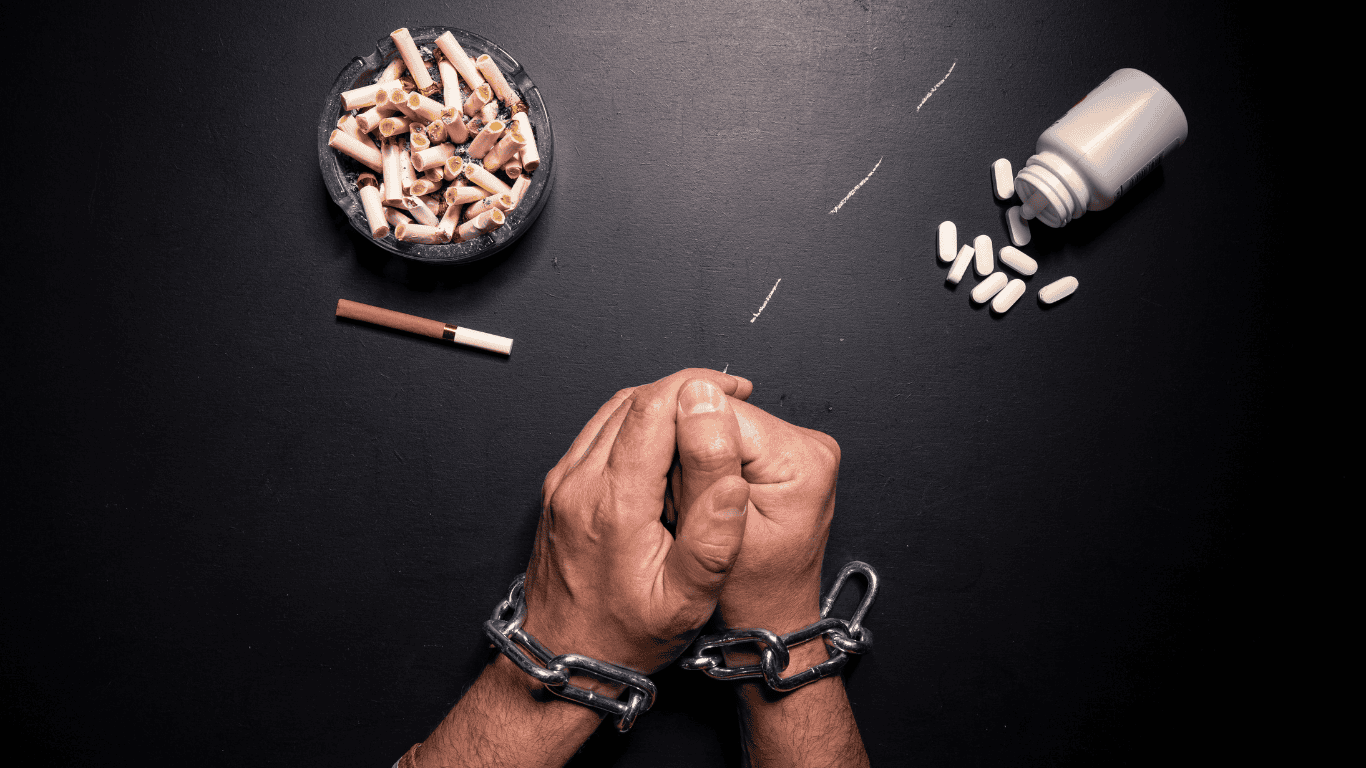Recovery from substance abuse is not a sprint; it’s a lifelong journey of learning, healing, and self-discovery. Just as it takes time for a substance use disorder to develop, it takes time to rebuild a life in recovery. While the initial withdrawal period may last only a few days to two weeks, early recovery is just the beginning of a much deeper process. Navigating the relapse cycle—including emotional relapse, mental relapse, and physical relapse—is part of the path many individuals face. That’s why understanding relapse addiction and learning effective coping strategies and relapse prevention tools is essential.
At Rockland Recovery Centers in Massachusetts, we specialize in helping clients recognize early warning signs, strengthen their coping skills, and break free from the patterns of substance abuse. Our compassionate, evidence-based programs in New England are designed to support you through every phase of recovery—especially when the road gets bumpy. Whether you’re just starting or seeking support after a relapse, Rockland Recovery is here to help guide you back on track.
Understanding the Drug or Alcohol Addiction Cycle
Many individuals who struggle with drug or alcohol addiction didn’t begin using with harmful intentions. Often, substance abuse starts as a way to cope with unresolved trauma, physical or emotional pain, or overwhelming life stressors. Some turn to drugs or alcohol due to a lack of access to proper mental health care, while others become unintentionally dependent on an addictive substance that was originally prescribed to help. Shame, stigma, and poor self care may prevent someone from seeking help, allowing the cycle of addiction to quietly take root.
This cycle often follows a predictable pattern:
- A person self-medicates to escape physical or emotional pain.
- Temporary relief is experienced.
- As the substance wears off, symptoms return—often more intensely.
- The individual uses again, often in higher amounts, to regain that sense of relief.
Soon, this cycle takes hold, and using becomes the top priority, outweighing relationships, work, and even self-worth.

Understanding the Addiction Recovery Cycle
Addiction recovery is also a cyclical process. Drug and alcohol detox is the first stop along the way, and for many, it’s not a one-time event. It’s not unusual for clients to detox, recover, and then relapse. In this situation, it’s necessary to start over again, beginning with detox, and progress through the stages of recovery once again. Some clients are able to detox, recover, and remain sober forever. However, it’s far more likely to experience bumps and potholes along the way. Regardless of how recovery plays out for you, it’s important to remember that you’re special, you’re loved, and your path to recovery is unlike anyone else’s. If you relapse, it’s okay to start over again.
Addiction Recovery Is Not a Linear Path
Addiction recovery is not a linear path—it’s a cyclical, evolving journey that requires patience, perseverance, and ongoing support. For most people recovering from drug or alcohol use, detox is just the beginning. While it may be the first critical step in the recovery process, it’s rarely the last. In reality, recovery unfolds over time, often with challenges along the way, including the potential for addiction relapse.
It’s common for individuals in early recovery to relapse periodically, which does not mean failure. These moments can offer valuable insights into the individual’s triggers, habits, and vulnerabilities. Recovery often involves moving through distinct stages—from emotional instability to internal conflict and finally, to physical action—which mirror the emotional, mental, and physical relapse stages.

Recognizing the Mental Relapse and Emotional Relapse Stages
In the emotional stage, a person may not even be thinking about using, but warning signs begin to appear. If left unaddressed, this emotional distress can shift into mental relapse, where internal dialogue begins to change. The brain starts to rationalize using again, fantasize about substances, or bargain with the idea of “just one time.”
Warning signs of emotional relapse may include:
- Mood swings or irritability
- Withdrawing from friends, family, or support groups
- Skipping therapy or group sessions
- Neglecting physical self-care, such as hygiene, diet, or sleep
- Bottling up emotions or feeling disconnected from your own skin
These internal shifts can happen quietly, making them especially dangerous if a person lacks a strong support network or has no strategies to interrupt the cycle. That’s why it’s critical to understand relapse prevention not as a one-time effort, but as a set of recovery strategies that must be practiced consistently to prevent relapse in the future.

Building a Recovery Lifestyle
This is why building a recovery lifestyle that includes group therapy, regular check-ins with rehabilitation centers, connection to support groups, and healthy daily routines is crucial. When individuals are actively supported and educated on how to understand relapse prevention, they are far better equipped to recognize the signs, stay grounded, and avoid repeating harmful cycles.
Relapse, while common, doesn’t erase the progress already made. In truth, every time a person learns to interrupt the cycle, whether by addressing emotional distress early on or choosing to reach out instead of using, the power of relapse diminishes. Recovery isn’t about doing it perfectly. It’s about continuing to show up, even when it’s hard, and trusting that healing is still possible with the right tools and community by your side.
A Practical Tool to Help Break the Vicious Cycle of Addiction
For many individuals, using drugs or alcohol was once a way to escape feeling overwhelmed, anxious, or out of control. But over time, substance use can become part of a vicious cycle, where short-term relief leads to long-term consequences. Even after detox and early recovery, those lingering feelings of unease—feeling out of place in your own skin or uncomfortable in new routines—can create openings for relapse opportunities.
Fortunately, there are practical, evidence-based tools that can help. Simple practices like deep breathing can regulate the nervous system, reduce stress, and ground you in the moment, especially when you feel cravings coming on. These mindfulness tools become even more powerful when paired with active participation in structured support systems.
Additional Support and Resources are Available
Organizations like Alcoholics Anonymous and Narcotics Anonymous have helped millions of people find connection and accountability. Attending meetings, reflecting on your past use, and leaning into the stories of others navigating similar paths can provide a helpful tool for sustained recovery. These peer-based programs offer insight into the three stages of relapse and how to move through them without falling back into addictive patterns.
It’s important to remember that those with co-occurring chronic conditions, such as anxiety, depression, or chronic pain, may face a higher risk of relapse if those conditions go untreated. In these cases, recovery requires a holistic approach that addresses both the root causes of substance use and the emotions that follow. At Rockland Recovery, we encourage open dialogue, whole-person care, and strategic planning to reduce relapse rates and help clients feel truly at home in their recovery.

Begin Your Recovery Today at Rockland Recovery Centers
Grasping the entire addiction cycle—comprising the three distinct stages of emotional relapse, mental relapse, and physical relapse—is a crucial step towards overcoming addictive behaviors and creating a healthier future. Without support and structure, individuals in recovery may face a higher risk of setbacks, especially if they’re unaware of how subtle patterns like poor eating, isolation, or lack of active participation in recovery can signal the onset of emotional and mental relapse.
At Rockland Recovery Centers, we provide more than just treatment—we offer a roadmap to sustainable change. Our team helps clients rebuild their lives through personalized care, connection to support groups, and routines grounded in a healthy lifestyle. We believe that relapse does not define your recovery; how you respond to it does. With the right tools, support, and guidance, the cycle can be broken.
If you’re ready to begin or restart your recovery journey in the New England area, Rockland Recovery is here to help. Call us today or visit us online to learn more about our programs, accommodations, and how we can walk alongside you, every step of the way.
Works Cited
Melemis, Steven M. “Relapse Prevention and the Five Rules of Recovery.” The Yale Journal of Biology and Medicine, vol. 88, no. 3, 2015, pp. 325–332. https://www.ncbi.nlm.nih.gov/pmc/articles/PMC4553654/.
National Institute on Drug Abuse. “Drugs, Brains, and Behavior: The Science of Addiction.” National Institutes of Health, July 2020, https://nida.nih.gov/publications/drugs-brains-behavior-science-addiction.
Marlatt, G. Alan, and Dennis M. Donovan, editors. Relapse Prevention: Maintenance Strategies in the Treatment of Addictive Behaviors. 2nd ed., Guilford Press, 2005.
Substance Abuse and Mental Health Services Administration (SAMHSA). “TIP 35: Enhancing Motivation for Change in Substance Use Disorder Treatment.” SAMHSA.gov, 2019, https://store.samhsa.gov/product/TIP-35-Enhancing-Motivation-for-Change-in-Substance-Use-Disorder-Treatment/SMA15-4212.
